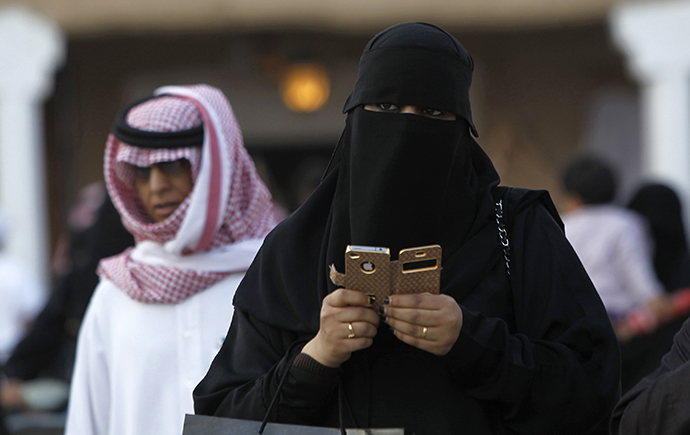Saudi women celebrate: Monitoring system of cross-border movements suspended

Saudi Arabia has suspended an electronic system to notify male guardians about the departure or arrival of their female relatives. Local women complained the system was humiliating and suggested introducing a similar one for their husbands.
"The system has been suspended due to some observations and
it will undergo amendment," spokesperson of the Passports
Department, Lt. Col. Ahmad Al-Laheedan, said, indicating that the
old rules could be revamped, and some new options added.
Under the current system, an SMS is sent to the male guardian
each time his female family member or a child crosses the
Kingdom’s border.
"In the past, the system included all the names that were
registered. However, in the next phase, it will be optional. The
amendments seek to enhance the system to make it better and
fulfill all its objectives," Al-Laheedan said.
A number of Saudi women argue that the notification process
should have never been introduced in the first place, because it
is "humiliating for women" and pushes them into the same
category as children.
"Women like myself who may have open permission from their
guardian to travel find the issue particularly ridiculous because
our guardians are notified of our every move as if we are
children that need to be tethered to become responsible
adults," a Saudi columnist and Assistant Professor of
Applied Linguistics at King Saud bin Abdulaziz University for
Health Sciences, Sabria S. Jawhar, told Arab News.
"I hope this is a step toward canceling the whole system. We
are born Muslim and we know the principles of our religion. There
is no need for anyone, including the government, to monitor our
behavior," she stressed.
A managing editor of the OIC Journal (The Organization of Islamic
Cooperation) has also supported the move to cancel the system,
saying it was disrespectful of women's rights.
"All Saudi women travel abroad with the permission of their
parents or husbands. The system gives the impression that women
require constant monitoring. It also shows that women cannot be
trusted," Maha Akeel said.

A number of Saudis have approved the system, however, saying it really helped families with awareness of the cross-border movements of their dependents.
"Without such a system, a woman or a child would be free to come and go and travel abroad without her or his family knowing about it," one Saudi blogger said, quoted by arabnews.com. "If such is the case, we will find many of our women and children going abroad without our knowledge," he pointed out.
If the main objective of the notification system is indeed to provide a useful service for all members of the families, men should also "join the club," Saudi women suggested.
"I am sure that many problems will be solved if women were aware of their husbands’ cross-border movements as well," Gulfnews.com quoted one blogger, Salwa, as saying. "In fact, women would benefit from the system much more than men. So please include them and alert their wives about their international departures and arrivals," she added.
Every adult woman in Saudi Arabia is required to have a close male relative as her ‘guardian’, authorized to make key decisions on her behalf, including the right to travel, to start a business, and study at university. Saudi women are prohibited from driving, and are required to cover themselves in public, among other restrictions.
As a rule, women in the ultra-conservative Kingdom of Saudi Arabia maintain a traditional place inside the household. Many issues in their quiet lives are strictly regulated by Sharia law, derived from the Koran.
Earlier this month the country’s first female law firm has opened its doors to protect women’s rights in Saudi Arabia. The move came two months after the company's founder, along with three other female lawyers, were granted licenses to practice law in the traditionally patriarchal kingdom.
The first female Saudi lawyer, Bayan Mahmoud Al Zahran, who set up her all-woman law firm in Jeddah, said she would fight for the rights of Saudi women and relate women’s cases to the court, a task which her male counterparts cannot handle at times.














